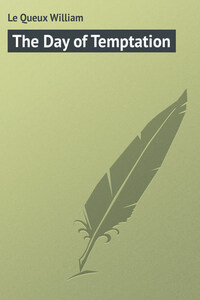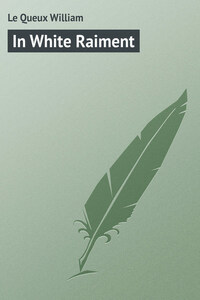Chapter One
Describes a Man and his Secret
“See! It’s – it’s in my kit-bag, over there! The thing – the Thing at which the whole world will stand aghast!”
The thin, white-faced, grey-bearded man lying on his back in bed roused himself with difficulty, and with skinny finger pointed at his strong but battered old leather bag lying in the corner of the small hotel bedroom.
“The keys – on my chain – Mr Kemball – ” he gasped faintly, his face slowly flushing. “Open it, quick! – ah no! you can’t deceive me, my dear fellow. I’m dying! I heard what the doctor told you – though he only whispered. But, Mr Kemball, although you are a young man, I – I’m going to trust you with a – with a strange responsibility. I – I trust you because you were so very kind to me on board. They all shunned me – all save you! They didn’t know my real name,” – and the old man chuckled bitterly to himself – “and they were not likely to!”
“You were unwell on the voyage, Mr Arnold, and it was surely my duty to – ”
“Duty! What duty do you owe to me? – a perfect stranger – an adventurer for aught you know!” cried the old fellow with whom I had formed such a curious friendship. “No, Mr Kemball, you have acted as a real man, as a friend – one of the few friends one meets in this hard, workaday world,” and he clutched wildly at his throat, while his sunken cheeks slowly assumed a hectic flush. “Unlock the bag – get it out – before – before I lose my senses,” he added.
I took from the dressing-table the bunch of keys attached to his steel watch-chain, and was crossing the room towards the bag when he exclaimed —
“Listen, Mr Kemball! I’m a dying man. Will you make a solemn promise to me? Will you grant me one last earnest request? In half an hour – perhaps before – I shall be lying here dead. But I’m still alive – a man who has seen much, who knows strange things – a man who has lived through much, and who has stood by and seen men die around him like flies. God! If I dare only tell you half – but – ”
“Well, Mr Arnold,” I asked quietly, returning to the bedside and looking into the pinched grey face, “how do you wish me to act?”
“I have already written it here – I wrote it on board ship, after my first seizure,” he said, slowly drawing a crumpled and bulky envelope from beneath his pillow and handing it to me with trembling fingers. “Will you promise not to open it until after I have been placed in the grave, and to act as I have requested?”
“Most certainly, Mr Arnold,” was my reply. “A promise given to one who is about to pass to the Beyond is sacred.”
His thin fingers gripped my hand in silent acknowledgment. He did not speak, but the expression in his eyes told of his profound thankfulness. I placed the letter in my breast-pocket. Something seemed to be enclosed within.
“Go and open the bag,” he whispered, after a brief silence.
I did so, and within, to my great surprise, found two huge bundles of fifty and hundred pound Bank of England notes, each packet several inches thick and tied with faded pink tape.
He beckoned me to bring them to him, and when I again stood near the bed, he selected one note, and then said —
“I wish you to destroy all of them – burn them there in the grate – so that I can watch you,” and he gave vent to a harsh, unnatural laugh, a hideous laugh of despair.
I looked at him in hesitation. The poor old fellow was surely mad. In my hands I held notes to the value of an enormous sum. And yet he wished to ruthlessly destroy them!
He noticed my hesitation, and in a quick, impatient tone, asked whether I would not carry out his wishes, at the same time handing me the note he had taken, telling me that it was to pay for his interment.
“As you desire,” I said, with some reluctance.
“But is it just – with so much distress here, in London – to deliberately destroy money like this?”
“I have a reason, Mr Kemball, a very strong reason,” he answered in a low tone.
So I was compelled to untie the bundles, and, separating the notes, placed them in the grate and commenced a fire, which I fed on and on, until the last note had been consumed, and there remained only a grate full of blackened tinder. I confess that I found myself wishing that I had the numbers of some of the notes, in order to reclaim their equivalent from the Bank.
The old man’s wild eyes, full of unnatural fire, watched the flames die down, and as they did so he gave a sigh of distinct relief.
Then, with difficulty, he turned to me and, putting out his hand, said —
“In the bag – at the bottom – you will find a sealed cylinder of metal.”
I searched as he directed, and drew forth a heavy ancient cylinder of bronze, about a foot and a half long and three inches in diameter. The top had, I saw, been welded down, but a long time ago, because of the green corrosion about it.
When I had carried it across to him, he looked me straight in the face with those deep-set glassy eyes, which haunted me for long afterwards, and said —
“I trust you with that, Mr Kemball, because – because – I feel assured that you will act as I direct. Do not attempt to seek – to discover what is within. That secret must be withheld – from you. In this I hope – that you will respect my desire – I hope so, for – for your own sake.”














